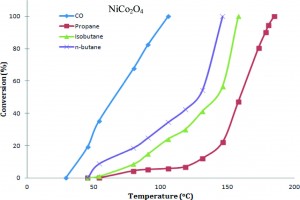Watching an automobile expert converting a gasoline engine to a LPG engine (using conversion kits) may leave the witness in awe of the technological advances which man has achieved ever since the invention of the wheel. But, this Jugaad comes with its own set of problems and issues which may not leave the environmentalists in the right frame of mind. Pollution has been raising concerns ever since the inception of automobiles (particularly two and three wheelers) and has been a serious concern in both developed as well as developing nations like India and China. To curb the menace of pollution, LPG has been considered an attractive alternative in terms of low CO2 production, lower emission of other greenhouse gases, cheaper cost and more efficient fuel usage.
However, the use of conversion kits almost kills the purpose of LPG as it results in emission of high concentrations of light hydrocarbons (HCs) along with other pollutants such as CO and NOx, as LPG must be run on custom-made engines rather then gasoline engines. The HCs and CO can be oxidized to H2O and CO2 in presence of oxygen, but due to reduced availability of oxygen in LPG engines, the demand of oxidation catalysts has risen in order to facilitate the conversion of HCs into CO2 and H2O. Three-way catalysts (TWC) which include the platinum group metals, fail to oxidize HCs at low temperatures (between 200 to 300 °C), resulting in the maximum emissions of HCs after a cold-start. (Engines started when they are cold generally have initial temperatures around this range)
To come up with a low-temperature catalyst, researchers from Indian Institute of Technology (IIT-BHU) tried their hands with cobaltite spinel oxidation catalysts (MCo2O4) and had immediate success with their experiments. They studied different metal cobaltites (M = Zn, Ni, Cu) and found Ni cobaltite to exhibit the best performance for oxidation of LPG at low temperatures, with the effectiveness of the catalysts following the order: NiCo2O4 > CuCo2O4 > ZnCo2O4.
Due to the synergistic effect of simultaneous oxidation of LPG and CO, total LPG oxidation was found to occur at 185 °C, which is 10°C less than that for oxidation of LPG alone. Thus, the researchers were able to devise a new spinel catalyst which catalyse the oxidation of HCs and CO at low temperatures and were able to solve the problem of cold-start of LPG fuelled vehicles to some extent.
Low Temperature Complete Combustion of Lean Mixture of LPG Emissions over Cobaltite Catalysts
Ram Prasad, Sony Chaddha and Pratichi Singh
Catal. Sci. Technol., 2013, Accepted Manuscript
DOI: 10.1039/C3CY00537B
 Shreesha Bhat is a M.S.(Pharm.) in Medicinal Chemistry from National Institute of Pharmaceutical Education and Research, India. His area of interests include chemical synthesis of biologically important molecules and developing newer methods for organic synthesis using novel catalysts.
Shreesha Bhat is a M.S.(Pharm.) in Medicinal Chemistry from National Institute of Pharmaceutical Education and Research, India. His area of interests include chemical synthesis of biologically important molecules and developing newer methods for organic synthesis using novel catalysts.











